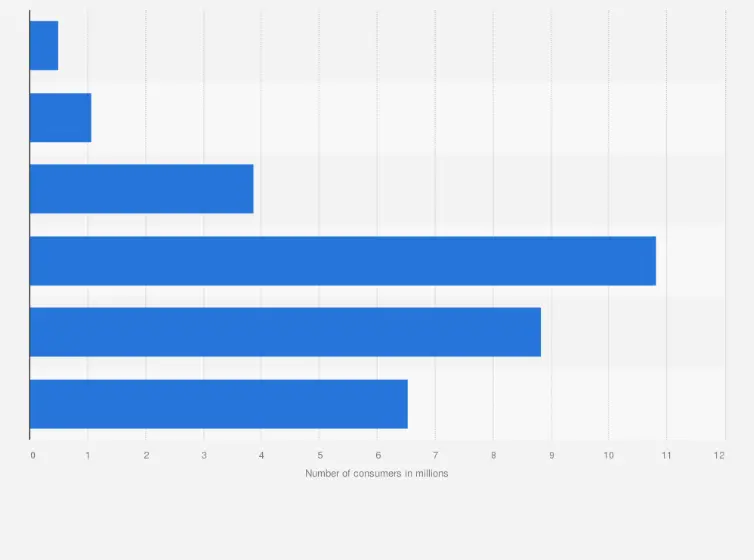Every day, millions of people around the world light up a cigarette, despite the numerous health risks associated with smoking. The consumption of cigarettes can vary greatly from person to person, with some smoking only a few cigarettes a day, while others smoke excessively. In this article, we will delve into the average number of cigarettes smoked in a day and the trends in cigarette consumption over time.

The Typical Daily Cigarette Consumption
A recent study on smoking habits revealed that the average daily smoker consumes approximately 15 cigarettes per day as of 2020. This figure marked a slight increase from the previous year's estimate of 17 cigarettes per day. Overall, cigarette consumption has been declining steadily since 1999, with a significant decrease of around 5 cigarettes per day over the past two decades (See Figure 8).
While the average daily consumption of cigarettes may be around 15, it is important to note that smoking habits can vary widely among individuals. Some individuals may smoke far fewer cigarettes each day due to personal preference, health concerns, or financial limitations. On the other hand, heavy or chain smokers may exceed the average and smoke a considerably higher number of cigarettes daily.
The Factors Influencing Cigarette Consumption
There are several factors that can contribute to the number of cigarettes smoked by a person on a daily basis. These factors include:
- Individual preference and smoking behavior: Some individuals have a higher nicotine addiction and may have a greater craving for cigarettes. This can lead them to smoke a higher number of cigarettes each day.
- Stress levels: Stress is a common trigger for smokers. When faced with stress, individuals may turn to smoking as a coping mechanism, leading to increased cigarette consumption.
- Social settings: Social settings, such as smoking with friends or coworkers, can influence the number of cigarettes a person consumes. Peer pressure and social norms play a key role in determining smoking habits
- Availability and accessibility: Easy access to cigarettes can also impact daily consumption. Individuals who work in environments where cigarettes are readily available, like bars or clubs, may be more prone to smoking a larger number of cigarettes each day.
The Decline in Cigarette Consumption
Over the past two decades, there has been a notable decline in cigarette consumption. This decline can be attributed to several factors, including increased awareness of smoking's harmful effects, stricter tobacco control policies, and the rise of alternative smoking methods such as e-cigarettes.
The implementation of public health campaigns that focus on the dangers of smoking has played a significant role in reducing cigarette consumption. These campaigns aim to educate the public, highlight the health risks, and discourage smoking initiation and continued cigarette use.
Furthermore, governments across the globe have implemented stricter tobacco control measures to curb smoking habits. These measures include higher taxes on cigarettes, bans on smoking in public places, and graphic warning labels on cigarette packaging. These efforts have collectively led to a decrease in smoking rates and subsequently, a decline in daily cigarette consumption.
**Are there any health risks associated with smoking?** Yes, smoking poses numerous health risks. It can lead to various diseases, including lung cancer, heart disease, stroke, and chronic obstructive pulmonary disease (COPD). Secondhand smoke exposure can also be harmful to non-smokers.**Is it possible to quit smoking?**Yes, quitting smoking is possible. There are various resources available, such as counseling, support groups, and medication, that can assist individuals in their journey to quit smoking. Quitting smoking greatly improves overall health and reduces the risk of developing smoking-related illnesses.**Does the number of cigarettes smoked affect the risks?**Yes, the number of cigarettes smoked directly correlates with the health risks. Smoking fewer cigarettes or quitting altogether reduces the harm caused by smoking. However, even light or occasional smoking carries health risks and should be avoided.
Understanding the average number of cigarettes smoked per day provides insight into smoking habits and helps to identify the factors contributing to cigarette consumption. While the average daily consumption appears to be around 15 cigarettes, it is essential to address individual variations and the potential health risks associated with smoking.
The decline in daily cigarette consumption demonstrates progress in reducing smoking rates worldwide. However, continuous efforts are needed to further educate the public about the dangers of smoking and to provide resources for those looking to quit. By promoting smoking cessation strategies and implementing effective tobacco control policies, we can work towards a smoke-free future.
If you want to know other articles similar to How many cigarettes smoked a day: a deep dive into smoking habits you can visit the Smoking category.


Related Articles